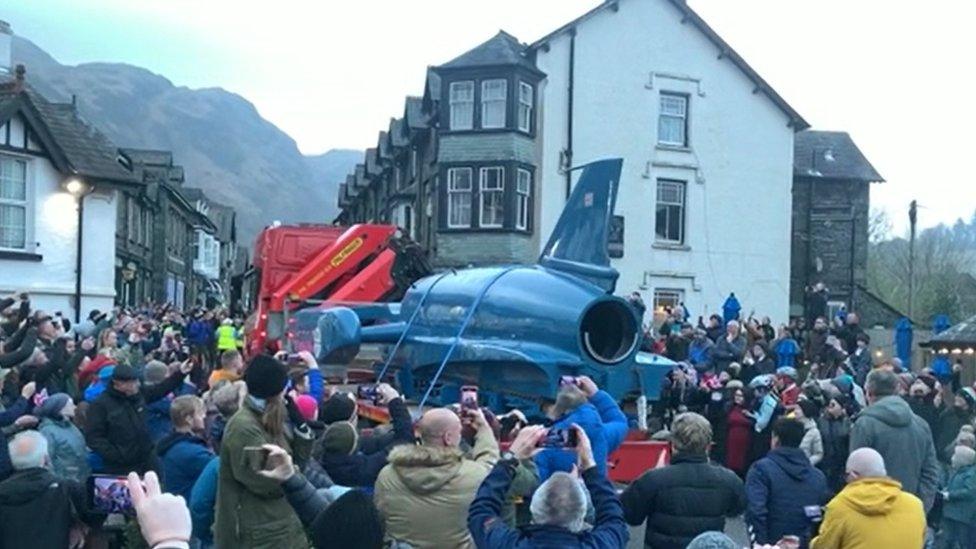Charity says car parks would 'destroy' Lake District
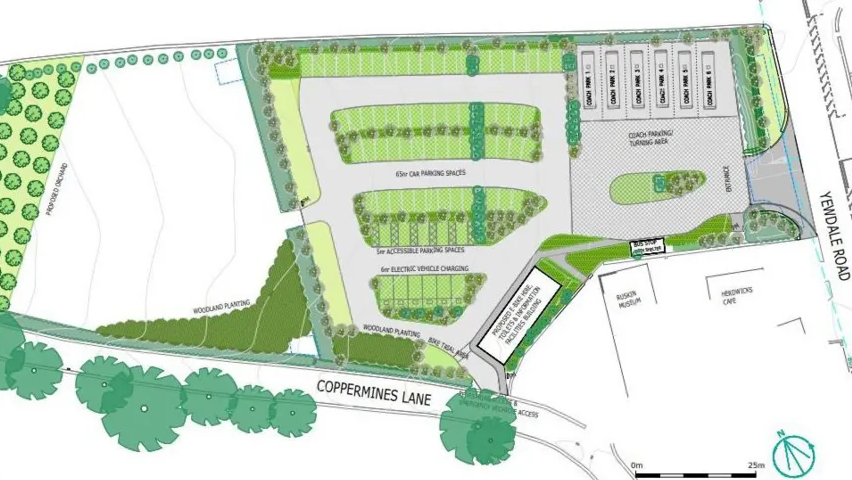
The site in Coniston will include 70 car parking spaces and six coach bays
- Published
The creation of car parks in the Lake District would "destroy" the natural beauty that enticed visitors in, a charity has warned after a plan was approved.
Plans to build the site behind the Ruskin Museum in Coniston, Cumbria, were approved by the Lake District National Park Authority on Wednesday.
The proposals involve 70 car parking spaces with five accessible spaces, six coach parking spaces and six bays for electric vehicle charging.
Charity Friends of the Lake District said the approach should instead be focused on "reducing demand and harm by providing alternative modes of getting to and around the national park".
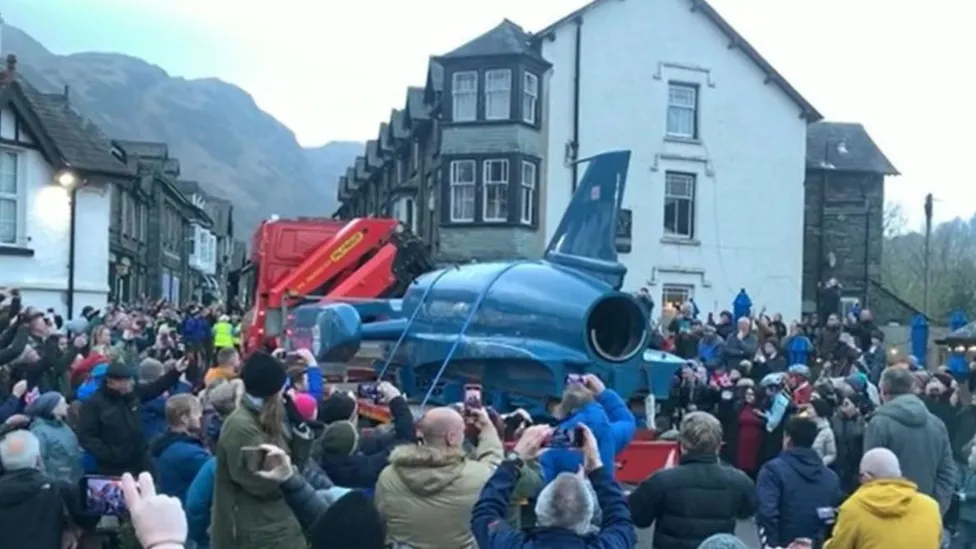
The return of Bluebird is expected to lead to a significant increase in visitors to Coniston
The museum said it was expecting an increase in visitors going to see the recently returned Bluebird.
The planned car park included provision for a bus stop but confirmation that it could be used would be required from the relevant operator, planning documents stated.
E-bike hire facilities and information about walking routes were also proposed in plans to facilitate sustainable transport, the Local Democracy Reporting Service said.
The car park would also offer a single tariff for parking all day in a bid to encourage long stays so visitors would either stay in the village, use the site as a base for walking or use public transport to travel elsewhere.
The design and access statement said the need for additional coach and car parking in Coniston was "long established" and recognised by both the Lake District National Park Authority and the parish council.
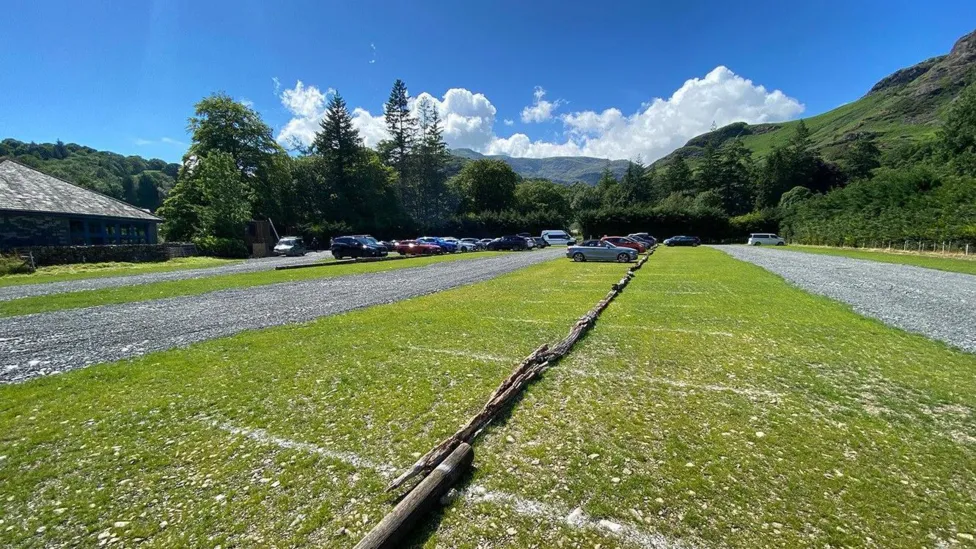
The car park will help cater to those visiting Bluebird K7 at the Ruskin Museum
Friends of the Lake District said the proposal was "inappropriate and unsustainable".
The group said making more car parks could "result in huge swathes of the Lake District being given over to parking" which would "destroy the very things people visit to enjoy", including the "spectacular landscape, the character of the area, and tranquillity".
Bluebird broke seven world water speed records between 1955 and 1967 and has recently gone on display in a new exhibition following a long battle over its ownership.
"The return of Bluebird is expected to lead to a significant increase in visitors to the Ruskin Museum, which currently does not have any dedicated parking, therefore the need for further public parking is even more acute", the planning document added.
Follow BBC Cumbria on X, external, Facebook, external, Nextdoor, external and Instagram, external. Send your story ideas to northeastandcumbria@bbc.co.uk.
Related topics
More stories from BBC North East and Cumbria
- Published4 September 2024
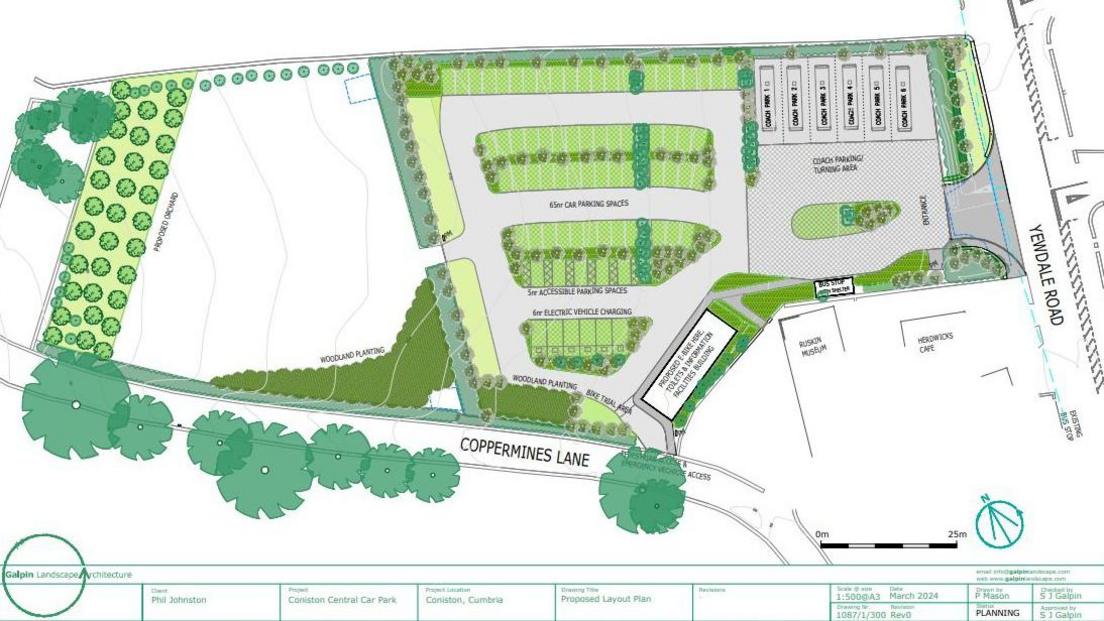
- Published5 April 2024
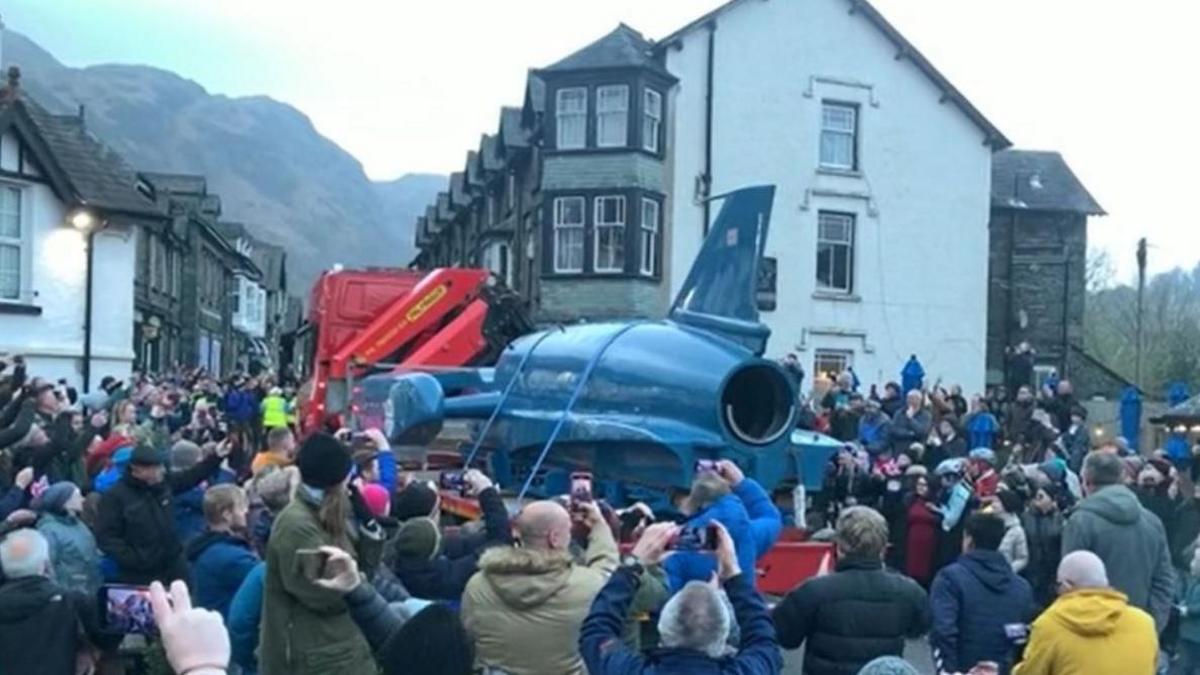
- Published9 March 2024
